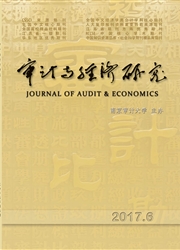

 中文摘要:
中文摘要:
2008年爆发的金融危机,引发国内一连串的民营企业倒闭事件,被视为金融危机对我国实体经济产生影响的标志。但是根据资料显示,此类倒闭企业的出口活动并未受到严重影响,进一步考察其倒闭原因发现,金融危机只是压死骆驼的“最后一根稻草”,不健康的现金流管理模式拖垮了企业的现金链,致使现金流运转出现了易被金融危机冲击的薄弱环节才是隐藏在幕后的真正杀手。合俊集团倒闭的案例研究,为分析其现金流状况,探讨其现金流断流的原因,并找到应对现金流危机的对策提供了思路。
 英文摘要:
英文摘要:
The international financial crisis in 2008 led to a series of bankruptcy of private enterprises. It is considered as an index that the crisis has impacted the substantive economy. But the data indicates that the exports of such bankrupted enterprises have not been affected. Further investigation explores that the crisis is not the "last straw" that breaks the camel's back, instead, it is the defective management mode of cash flow that collapses the cash chain of these enterprises. The real killer behind is the weakness of cash operation which is vulnerable to the shock of financial crisis. By using the bankruptcy of Hejun Group as a subject, we analyze its position of cash flow and explore the reasons for the cash flow cutout with a view to providing a way to deal with the crisis of cash flow.
 同期刊论文项目
同期刊论文项目
 同项目期刊论文
同项目期刊论文
 期刊信息
期刊信息
